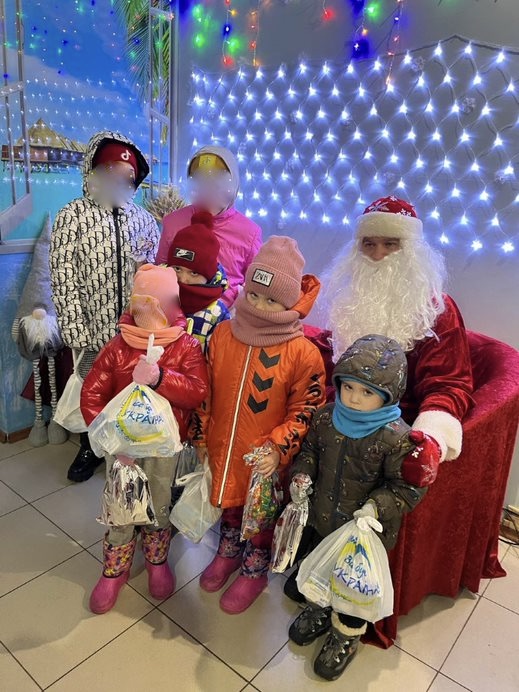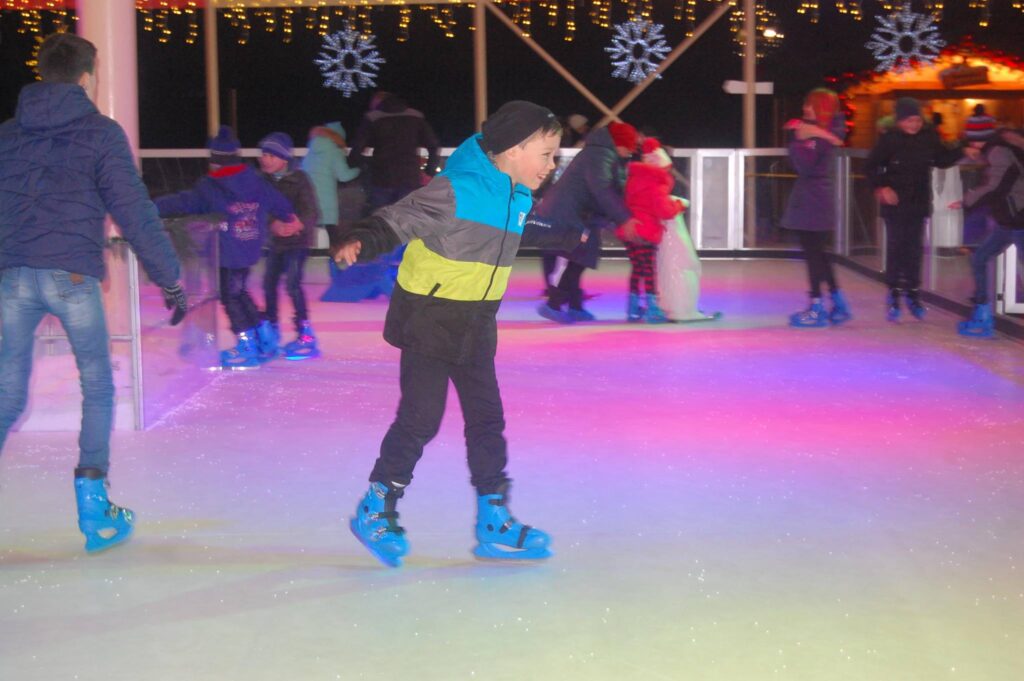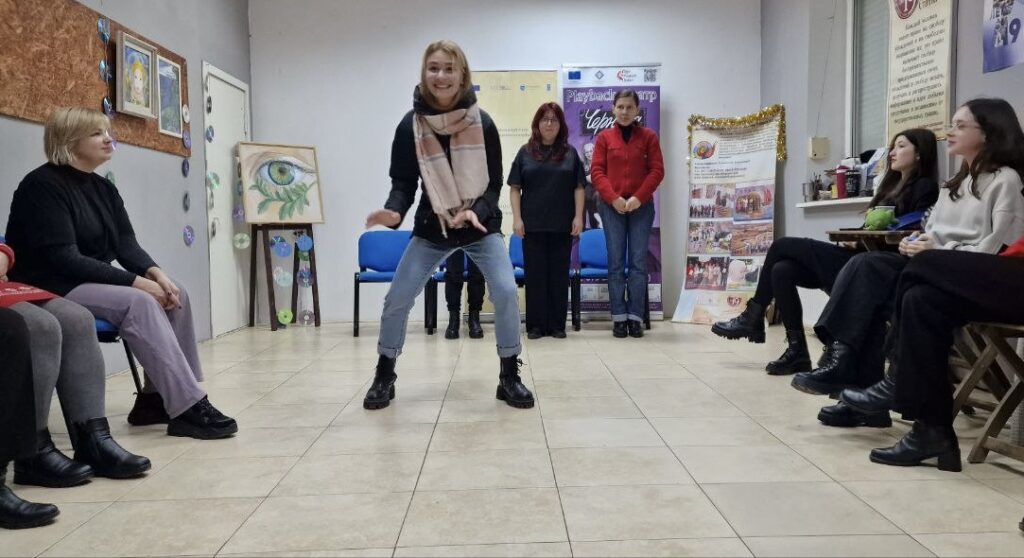
A long, cold, frightening winter – help is needed more than ever
In Ukraine many areas, including the capital Kyiv, other Ukrainian cities and recently liberated cities towns and villages (or “de-occupied” as Ukrainians term it) remain under bombardment. “De-occupied” seems a better term, as liberation sounds very positive, whereas the reality is that places like Kherson and Kharkiv are still under constant fire, as are cities like Dnipro and Zaporyzhzhiya. A large apartment block in Dnipro was destroyed by a missile in January, leaving more than 40 men, women and children dead and many more injured. Despite the risks, many elderly people are still reluctant to leave their homes, while others are requesting help to move to safer places. This means our partners are working harder than ever to provide what people need: transport for evacuees, food and hygiene kits for those who stay put or have left their homes, and especially hot meals, warm clothes, blankets, torches and camping lamps, portable stoves, power banks, generators (and fuel for them). They have been helping to set up and kit out warm spaces (‘invincibility points’) and bomb shelters with electric kettles, power banks and generators.

Despite all this work to provide absolute essentials to people in need, many partners decided that during the Christmas and New Year period people and especially children needed some seasonal cheer and they organised parties and handicrafts sessions for children, and provided cakes, biscuits and other special treats. Ukrainians have a choice of two Christmas and New Year dates to celebrate – 25 December and 7 January for Christmas Day and 1 and 15 January for New Year’s Day. The later dates are the Orthodox Christian dates, but many traditionally Orthodox families this year chose to celebrate when we in western Europe did.

The BEARR Trust was very happy to be able to help to fund some of these activities. We have become increasingly aware of the mental toll that the war is having on people of all ages, as well as the terrible wounds that people have sustained. Partner organisations are inviting people to attend their centres where they can access counselling and other support. They also tell us of the need for medicines, especially blood pressure medicines, blood coagulants and pain relief medication. Stress is ever present. The volunteers who use our funds to buy vital supplies for people trapped in villages under daily attack take enormous risks to keep them supplied with these basic essentials, or to evacuate them by private car. Some of the groups working in safer places are providing first aid training and art therapy.

Children bear the brunt of anxiety – they cannot understand what has happened to the world they knew, or – if they have fled their homes – visit grandparents now living far away. Hearing sirens every time there is another attack, or rushing down the stairs to shelters is terribly upsetting. Their schools cannot function either in person because there are insufficient shelters in case of an air strike, or even online much of the time because of constant power outages, so they are not learning. In Ukraine opportunities for treats such as outings are nigh impossible, but one of our partners in Moldova organised four bus trips for refugee children to a winter theme park. This is what they said: “During the bright winter holidays in January, we decided to give Ukrainian children a cheerful gift. Thanks to the support of The BEARR Trust, we organised four trips to the OrheiLand amusement park. The youngest traveller was two and a half years old, and the oldest was 78. A cosy 50-seater bus quickly brought our large company to the park and stayed in place – those who were frozen could return to the bus at any moment to warm up. All participants received a large sandwich. In total, about 200 people from Odesa, Kyiv, Kherson, Dnipro, and Mykolaiv went on the trips.”


The same organisation in Moldova has organised therapeutic work-shops using drama. Here is a photo of one of their sessions, for which BEARR provided the catering:

A women’s organisation in Ukraine used BEARR funds to provide sets of winter clothes to a hundred residents of several elderly care homes in the Kyiv region in October and November.

Another organisation wants to start retraining courses for Ukrainians to learn new skills to find work, either because they have moved away from their jobs or because it is no longer possible to do those jobs.
Meanwhile, cooperation between our beneficiary organisations is growing. Groups working in adjacent districts or regions are dividing up the tasks between them and keeping in touch with each other as well as with BEARR. Several of our partners have successfully applied for grants from larger donors, and a number of them are bidding for longer term funding.
Footnote: in the UK and in Europe many people are experiencing hardship this winter as a result of high prices for energy and food. To get a sense of what it is like in Ukraine read what Ukrainian author Andrey Kurkov, who wrote Death and the Penguin and Grey Bees, wrote in an opinion piece for the Guardian about hope for Ukrainians amid the blackouts during the war against Russia.
“Ukraine has entered 2023 as if going into a dark room where it is impossible to turn on the light. It seems that there are windows, but there is darkness behind them too. We must wait for the dawn or the restoration of the power supply. While there is neither one nor the other, darkness provokes a feeling of deep fatigue.
The Lviv University teacher and well-known Ukrainian poet Galina Kruk has noticed an unsettling pattern in her life – during a blackout, the power banks and batteries that feed her torches and lamps stop working about half an hour before the electricity comes back on. Then there is pitch darkness, which seems even thicker than when the lights first went out – that “early” darkness with which it was still possible to somehow cope.
These half-hour periods of impenetrable darkness, during which a person feels completely helpless, are the most difficult, both psychologically and physically. The time stretches to infinity – space shrinks and becomes terribly cramped. You feel acute hunger and a desire for sleep. Your muscles lose strength and physical movements require energy that is no longer there. For Galina, this state repeats itself every day and already she dreads these half hours without light.
In complete darkness, without additional sources of energy, a person indeed becomes defenceless. You might have a candle, but it gives just enough light to see your fear in the mirror, your inner condition written on your face, welling up in your eyes. After all, electricity allows communication with relatives and friends and the surrounding world in general. It is impossible to communicate with the help of a candle, except to send a signal from the window – “I am alive!””
The Guardian, 4 February 2023
So PLEASE continue DONATING to our appeal if you can, every little bit helps!!!!
Our work and that of our amazing partners goes on. “As long as it takes…” as the saying goes – and as long as we still have funds coming in!